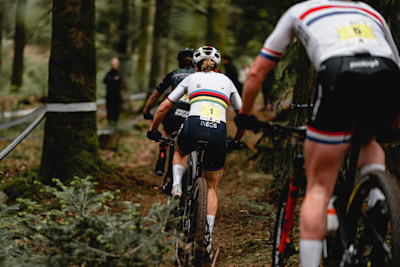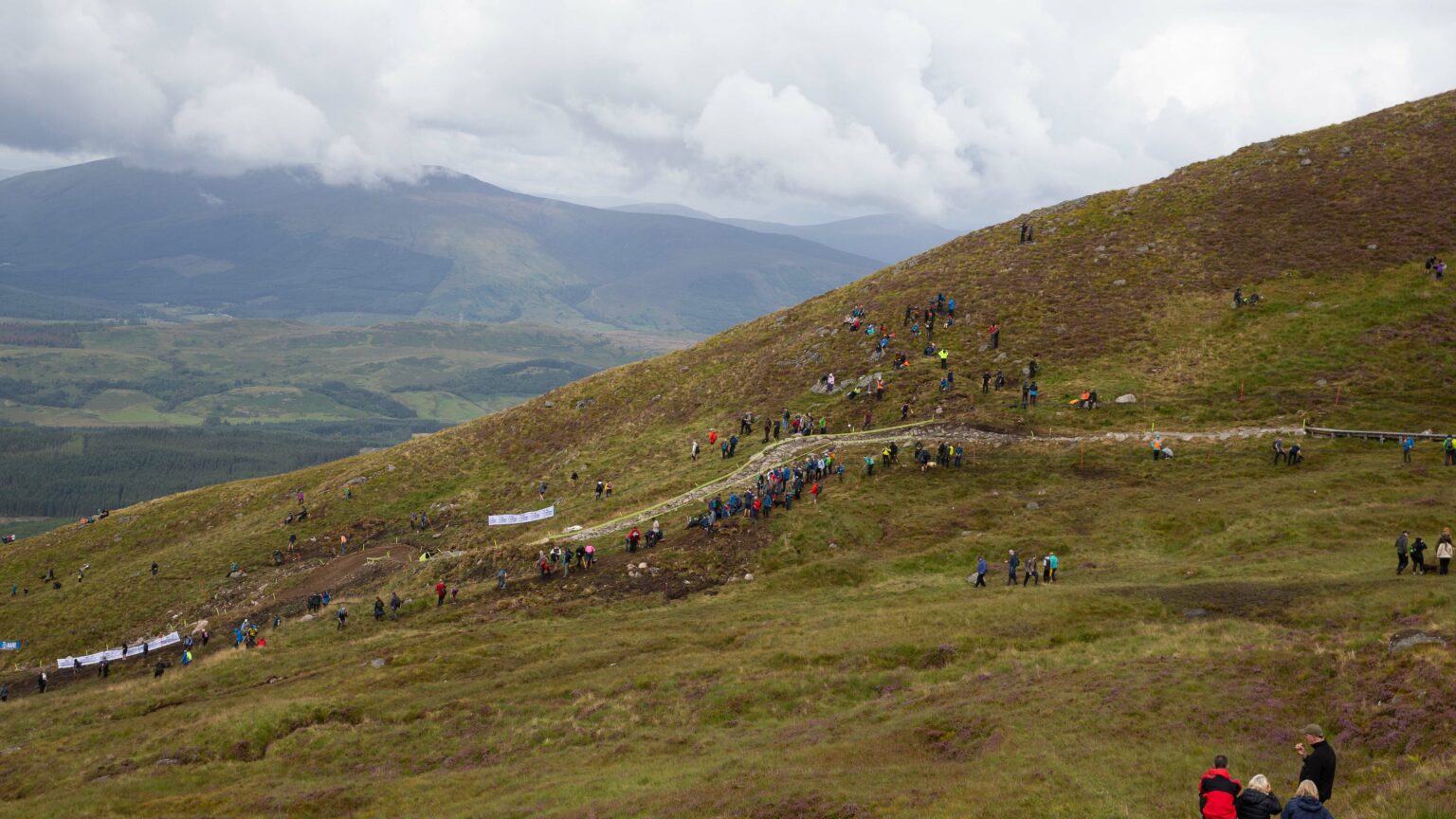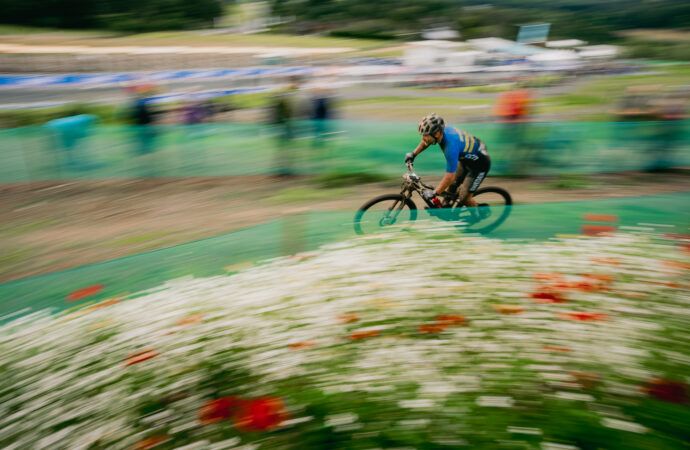Background
Glentress Forest in Scotland’s Tweed Valley is one of the UK’s premier mountain biking destinations, known not only for its 80 kilometres of trails but also for its rich biodiversity and dramatic landscapes.
In August 2023, Glentress hosted the mountain bike marathon and cross-country competitions as part of the 2023 UCI Cycling World Championships. These events brought an unprecedented number of spectators and riders to the area, posing potential threats to local wildlife and habitats.
Challenge
Bringing large crowds and major infrastructure to a sensitive natural environment risks damaging habitats, disturbing wildlife and accelerating erosion.
Forestry and Land Scotland (FLS), which manages Glentress, faced a challenge: how to welcome thousands of visitors and build new trails, car parks and bridges, without compromising the forest’s ecological health.
The area also lies within a wider biodiversity corridor, with ospreys nesting nearby and regular sightings of bats, badgers, otters and reptiles. Ensuring their protection, while delivering a world-class sporting experience, required a delicate balance of engineering, ecology and education.
Approach
To prepare for the Championships, FLS developed the Glentress Masterplan, which involved more than 1,000 hours of ecological surveying and monitoring. Wildlife studies were used to inform the design of the venue and course, with trails rerouted to avoid sensitive habitats and bridges built with minimal disruption.
Materials were sourced locally, and where possible, construction supported circular economy principles. For example, storm-felled trees from Storm Arwen were repurposed to create ‘Arwen Avenue’ – a unique section of the race route.
Local tradespeople, including former British mountain biking champion and trained carpenter Tracey Brunger, were commissioned to build the course infrastructure.
To help protect biodiversity, the Championships introduced ‘Keep It Clean’ guidelines co-developed with Sports for Nature, the UCI, NatureScot and Scottish Forestry. These were communicated through social media, venue signage and educational guides, including fun facts and osprey-spotting tips.
A sustainability hub encouraged teams to donate unwanted equipment and raised awareness of trail stewardship.
1,000 hours of ecological surveying and monitoring were conducted ahead of and during the event
Results and impact
The Glentress project demonstrated how large-scale sport can coexist with nature conservation. Intensive planning and local collaboration enabled the venue to accommodate record visitor numbers without damaging its ecosystems. Temporary interventions – such as natural furniture made from straw bales and wood – created a low-impact event village.
Trails were adapted, invasive species managed and plant and wildlife monitoring became a lasting legacy of the event.
The Championships also served as a springboard for nature-based tourism across Scotland. The environmental storytelling around Glentress helped spotlight the Tweed Valley as both a cycling hub and a haven for biodiversity.
Lessons learned
The 2023 UCI Cycling World Championships event showed that hosting elite sport in sensitive natural areas is possible with early collaboration and careful planning. Ecological surveys and adaptive trail design helped protect local species without compromising the competition.
Integrating sustainability across all operations, from local sourcing to hydrogen power and waste initiatives, delivered practical impact, while clear, engaging communications helped spectators connect with the forest as a living ecosystem.
“We were keen to engage with visitors to understand how a working forest, that also has recreation facilities, can work, be managed and add value back to the environment,” says Paul Andrews Garth, FLS Project Manager for the Glentress Masterplan.
Topics
Communications and education
Nature protection
Sport event
Land
Outdoor (land-based) sports
Event


